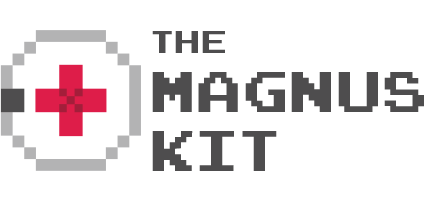Tic Tac Toe Vs. Chess: How Mechanics with Depth Affect a Game
Everybody knows how to play Tic Tac Toe. It’s one of the first set of game mechanics that children learn. Get three in-a-row of your symbol and bam, you’ve won! Chess is another game with mostly simple rules, but we have a lot more Chess tournaments than Tic Tac Toe tournaments. Why is that? There are a huge variety of ways that you can play chess and win. In gaming, a similar phenomenon pops up. Anybody can pick up the basics of Candy Crush or Street Fighter II Turbo, but you’d be hard pressed to find a Candy Crush tournament anywhere.
But how does depth of mechanics affect a game?
Foremost, deeper mechanics exponentially extend the lifespan of a game. With more room for exploration and refinement, the longer the game will last. People still play Street Fight II Turbo, which was released nearly twenty years ago in 1994, at this year’s Evolution Championship Series (EVO), the largest and longest running fighting game tournament in the world. The fact that people are still competing means that they’re still discovering new ways to use the characters.
Higher levels of play are only possible because of the variety of strategies that a player can experiment with and employ. After all, anybody can level up their favorite Pokémon to steamroll an opposing trainer, but a skilled player assembles their team specifically to counter threats before they’re fully realized. Using entry hazards like Spikes and Stealth Rock mean that a trainer could use a Pokémon with Rapid Spin to counter, or a Pokémon that’s immune to certain kinds of paralyzing attacks. These higher levels of play encourage the perception of progress through a game, by keeping the player more engaged with the mechanics than they were before they played strategically the player learns more about how the game works.
Deeper mechanics also tend to create passionate fanbases, a double-edged sword if there ever was one. With a passionate fanbase, people will be discussing, playing, and analyzing your game for years to come, but these same people are more attached to game than the studio that develops it. There’s a mod called Skywind for The Elder Scrolls V: Skyrim that is centered entirely around bringing the world of The Elder Scrolls III: Morrowind into the modern age by porting the whole game into Skyrim. Changes in the formula can have very negative reactions, like the large change in gameplay that players found in Fallout 3 compared to the earlier games in the series. Imagine that you’ve picked up a particularly mouthy barnacle and you’ll get a good idea about what it feels like to develop a “masterpiece.”
Deeper mechanics do not necessarily mean “complicated” or “nonsensical,” so when players must exit the game to understand how it works, something went wrong. Dark Souls, though a deep and enjoyable game, feature some unexplainable mechanics that don’t make sense within the game itself. Figuring out that Resistance is a garbage stat or that humanity is required to summon help (but also opens you up to invasion) is tough without a friend or the internet. Games like Dwarf Fortress are renowned and perhaps even loved for their complexity, but then true popularity will always be slightly out of DF’s reach. If you make a game too simple, it won’t hold enough interest to form a fanbase, so developers must introduce deeper mechanics to keep their company alive (usually in the form of sequel after sequel).
Chess is almost 1500 years old. To put that in perspective, chess has been around longer than most empires on Earth. Yet, people still play chess and will probably continue to play it until the sun explodes. The more you study the game, the more ways you learn to play. At the same time, most children can pick up the basics after a game or two. Deep mechanics create long lasting and loved games. Next time you’re playing something ask yourself, “is this is a flash in the pan or the kind of fire that burns forever?”
Mobile games will take over the entire gaming ecosystem unless you share this article with everybody you know. Quickly now, they’re coming!
For even more opinionated puffery, don’t forget to follow TheMagnusKit on Facebook and Twitter!











